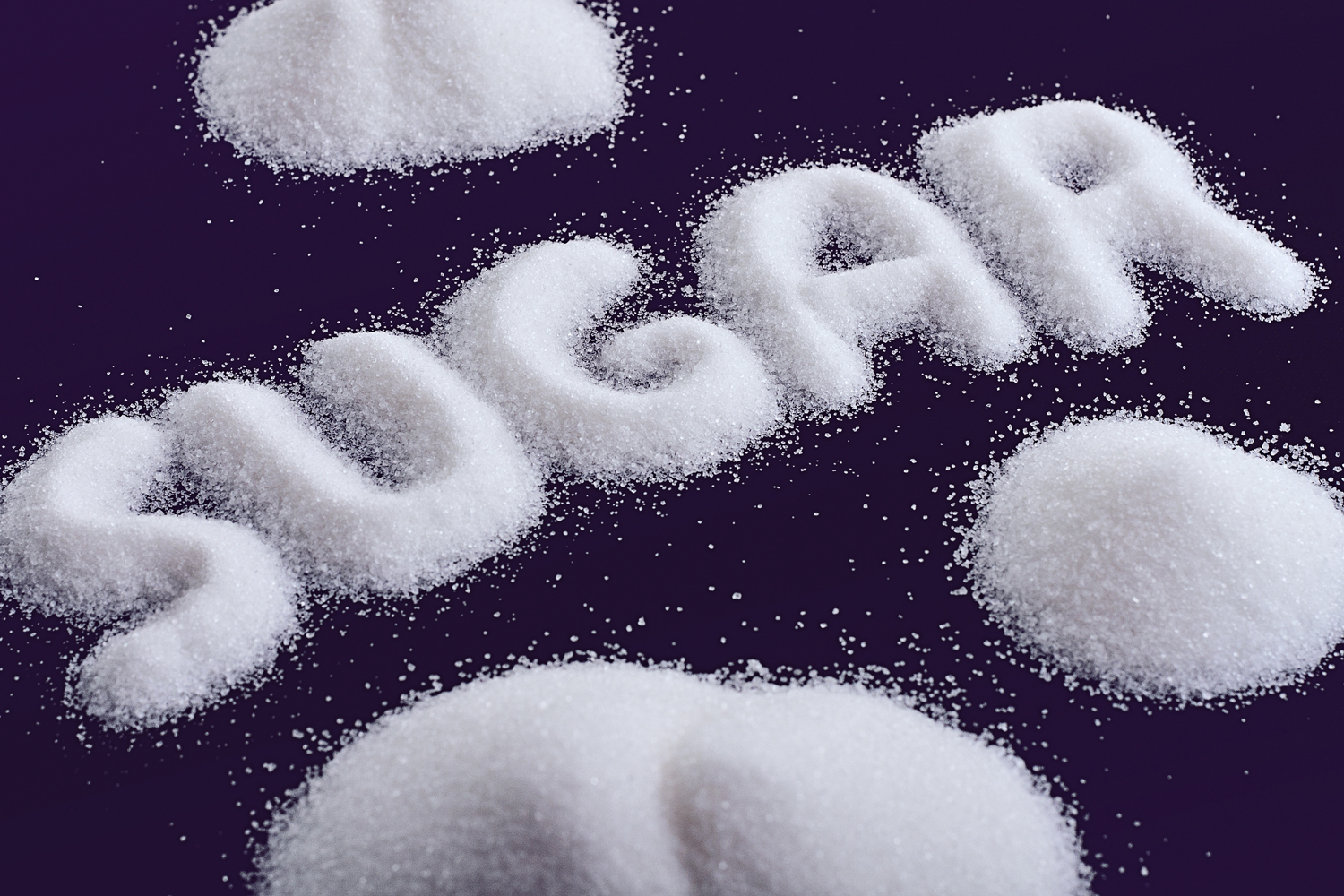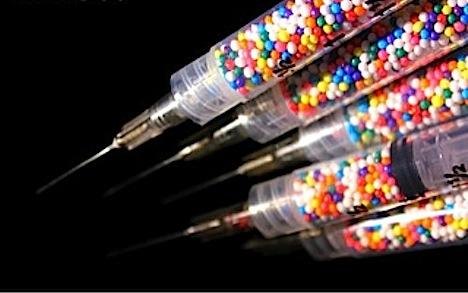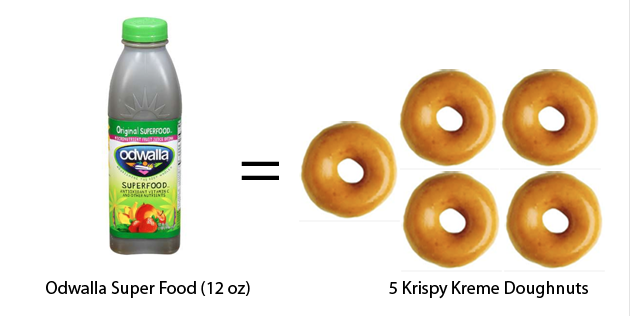How Sugar is Similar to Cocaine
By:

If you follow news about nutrition, it will come as no surprise we've seen a huge spike in obesity the past few decades. We started to see a change in our food in the 1970's when there was a push to produce more corn to fatten cattle and cheapen food. Naturally, the industrial scaling of production led to a surplus; while corn-based food became cheaper and (to many) tastier, it also made it unhealthier.
In the 1980's people got hip to the fact that fat makes you, well fat. So food manufacturers felt pressure to reduce fat content, but had a problem on their hands. Food without fat tastes bad. So what did they resort to enhance taste? You guessed it, sugar. Except it turns out, ironically, sugar makes us even fatter. This mass development of corn products also created high fructose corn syrup, another form of sugar. Soon, we started seeing high fructose corn syrup in almost everything, from coleslaw to pizza sauce.
The amount of sugar Americans consume, especially in the form of high fructose corn syrup, is extremely hazardous to our health. In fact, the World Health Organization only recommends we eat 6 teaspoons of sugar a day. To put that in perspective, a can of soda contains more than 10 teaspoons of sugar, usually in the form of high fructose corn syrup. For many, 6 teaspoons of sugar a day is not realistic given how much sugar is added to everything--especially cheap food. To make matters worse, sugar produces the same effect as cocaine in our system; its highly addictive.

Of course food manufacturers and farmers have come to the defense of high fructose corn syrup and sugar. For example, the Corn Refiners Association's 2011 commercial campaign played on people’s misunderstanding of what high fructose corn syrup really is. In the ad, a woman assumes high fructose corn syrup is bad but when asked why, she doesn't know. Instead of educating about the dangerous amount of the sugary substance in almost all the food we eat, this ad insults the intelligence of the American people by promoting misinformation.
Millennials are getting smarter about food:
We are a more health-conscious and educated generation and are willing to spend extra money on healthier foods. And food companies are aware of that too. We are paying attention to what’s appearing on food labels and realizing how deceptive they can really be. And these deceptive labels that list sugar under different names (so it doesn't appear as the main ingredient) are perfectly legal. By now foods labeled “Made with Real Sugar” or "Natural Sweeteners" are meant to be better because of people’s fear of high fructose corn syrup. But these food items contain are often just as bad.

Now, I know what you're thinking: Sugar is in everything! Krispy Kreme has more bad stuff in it! I can't eat anything! I get it. As some who has struggled with weight (and lost some pounds!) I understand how complex this whole healthy food thing is. Personally I would prefer the Krispy Kreme over Odwalla. I mean, who wouldn't want a hot and fresh doughnut right off the conveyer belt?! But I am becoming more educated about not only how bad a lot of food is, but how most of the foods marketed to be healthy are bad as well. Let's not even talk about those who cannot afford healthier options when sugary foods costs so low. Odwalla, which is owned by Coca-Cola, claims to be healthy but like its PepsiCo rival Naked Juice (which was sued for false advertising in 2013) these juices are deceptively full of added sugar. And sugar is sugar, whether it comes from a Krispy Kreme donut or a Odwalla drink.
News reporters Katie Couric and Dan Harris went sugar free for a week for the Fed Up sugar free challenge. Can you go without sugar for a week? Or take the challenge of only consume 6 teaspoons a day?
